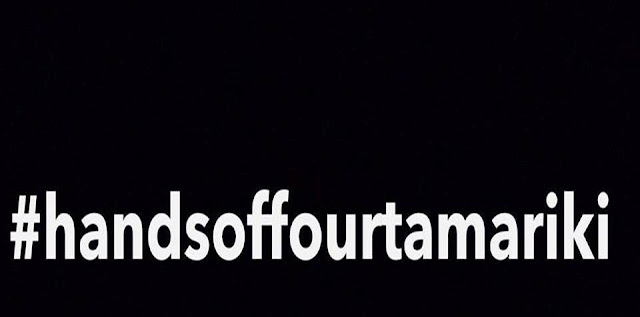description
Writing as a grindstone. Finished writing, unfinished writing, writing ideas, things that I'll never get round to writing, other things. Grinding it out, grinding away. Writing some more.
Wednesday, October 26, 2016
Open letter from Hands off our tamariki Ōtaki hui
The following letter was sent to all Māori Members of Parliament from the Hands off our tamariki Ōtaki hui, held 12 October at Te Wānanga o Raukawa.
Re: Proposed changes to the Children, Young Persons and their Families Act
Tēnā koutou i ngā tini āhuatanga o te ao,
On Wednesday, October 12, a hui in Ōtaki discussed the changes Anne Tolley has proposed to the Children, Young Persons and their Families Act, removing the clauses that consider the effects of decisions on whānau, and that prioritise placing a child within their hapū or iwi.
Those clauses came out of the 1988 report Puao-te-ata-tu. After extensive research around the nation, Puao-te-ata-tu found that ‘institutional racism’ was at the root of Māori social welfare problems, and predicted that the Crown would continue to fail Māori unless this was fixed. The report found that Māori succeed when rangatiratanga is recognised and supported, and recommended that Māori should be resourced to solve the problems Māori are facing.
Two findings of Puao-te-ata-tu are particularly related to the proposed changes. Firstly, children are members of whānau and hapū, and the wellbeing of those units needs to be considered. At the time, legislation regarded the welfare of the child as the first and paramount consideration (the proposed changes will re-instate this). The report found that in the context of institutional racism, this took away the ability of whānau, hapū and iwi to take responsibility for their children. Secondly, the well-being of Māori children includes their sense of belonging to whakapapa and whānau, prioritising their wellbeing includes prioritising those connections. In the context of institutional racism, not specifically prioritising whakapapa means children are isolated from their whakapapa and culture. This is dangerous.
Puao-te-ata-tu made many recommendations, most of which have not been met. The two clauses that Anne Tolley is proposing to remove were hard won. Removing them from legislation takes away all protection for connections to whakapapa.
It is unbelievable that social workers cannot find safe and loving whānau within a child’s whakapapa. As Tariana Turia has said of her iwi “You can't tell me that within 8000 people connected by our river, you cannot find someone to care for a child.”
It is tragic whenever CYF places children in unsafe situations, including unsafe whānau. It is an example of CYF making bad decisions for our children, and why we want to make those decisions ourselves. CYF’s bad practice cannot be used as an excuse to remove provisions to protect children in the context of whānau. To make that argument is transparently racist—Māori cannot be blamed for the Crown’s bad decisions.
Removing the clauses from legislation is simply another colonising act of control. The proposed changes are inconsistent with the UN Declaration on the Rights of Indigenous Peoples, to which New Zealand is a signatory. In particular, the changes are inconsistent with article 7.2 which recognises “the collective right to live in freedom, peace and security as distinct peoples and shall not be subjected to any act of genocide or any other act of violence, including forcibly removing children of the group to another group.”
It is apt that this hui was held at Te Wānanga o Raukawa. From the Wānanga, for decades Whatarangi Winiata has argued for an enduring and fair solution to the many problems that Māori face as a result of colonisation, including the number of children in state care. The solution he proposes is a reallocation of resources, from the Crown to Māori. If all the resources that the Crown takes and uses to protect our children were instead given to Māori, returning all responsibility to care for our children, history and experience suggests our children would be better off. This is the long-term solution we support.
We are asking you as a Member of Parliament to do all that you can to reverse the changes to the CYPF Act that Anne Tolley is proposing. These changes come from a monocultural understanding of child welfare. They will result in dislocating Māori children from their whakapapa and all the negative outcomes that stem from that disconnection. There has been no credible reason given for the changes. They breach the UN Declaration on the Rights of Indigenous Peoples, and meet the Declaration’s definition of genocide. We would expect the Crown to be moving towards honouring Te Tiriti, but these changes are a dangerous step away from rangatiratanga. They are assimilationist, racist and colonising.
We hope that you will be brave, energetic and outspoken in protecting our tamariki from these moves.
Ngā mihi,
Attendees of the Hands off our tamariki hui in Ōtaki, 12 October 2016
Labels:
abuse,
Children and the state,
colonisation,
CYF,
hands off our tamariki,
justice
Subscribe to:
Post Comments (Atom)

No comments:
Post a Comment